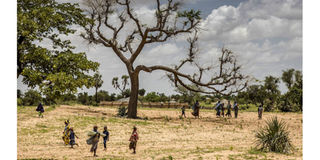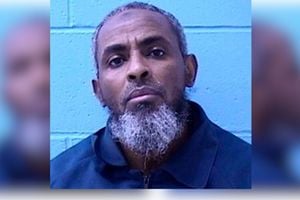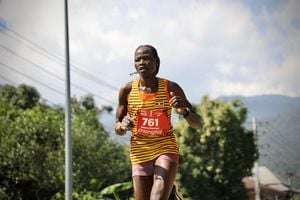Learning from ancient wisdom: Africa’s contribution to fighting climate change

There are two concepts known to almost all Africans. One is “Pamoja”, a Swahili word that can best be translated as togetherness. The other is “Ubuntu”, the concept of community, and in a wider sense of interconnectedness. Behind these words stand centuries of tradition, that has emphasized the unique African qualities of mutual reliance and communality.
As the world is now grappling with the unprecedented challenge of climate change, perhaps it is time that we all learn from ancient African wisdom. Still, large areas of it have been preserved to the benefit of all humanity.
And now, much of the thinking around fighting climate change is catching up with the concepts of traditional African ideas.
Climate change is an issue affecting all of us. Hence, every country needs to play a part in addressing this challenge, and all nations need to work together. That is “pamoja”. As the international community gathers this year in Baku, Azerbaijan for the annual climate change conference COP29, the need for a joint effort is more obvious than ever before.
The world has become interconnected. We can only endure if we realise that we are reliant on one another. That, in the wider sense, is “ubuntu”.
Mobilising international community and bringing together wide range of players is one of the key preconditions for the overall success of COP29, and climate change action in general. Earth is our planet and it is asking for help. COP29 is time to be reminded of the universal bond connecting all humanity.
How do we strengthen that bond? Here, we need to demonstrate determination through enhancing ambition and enabling action, the two mutually reinforcing pillars of COP29 Presidency Plan, where action on each sends a strong signal in support of the other. Using the framework of an ambitious, practical Presidency Plan, each nation’s individual plan is given a solid global foundation which can then be aligned with national development strategies.
On the one hand, this means committing to enhanced and ambitious climate action, with clear plans on how to keep 1.5C within reach and leave no one behind. And on the other, it is necessary to enable action on climate, by agreeing a new goal on climate finance (New Collective Quantified Goals – NCQG), considering the needs and priorities of the developing country parties, and shaping the global financial architecture to work for our planet.
Our efforts on climate finance should represent progression beyond previous efforts, delivering multiples, adequate to scale and urgency of the problem. COP29 Presidency is calling on everyone to bridge the gaps, bring together options into potential solutions and narrow down the choices.
COP29 will be a crucial make-or-break moment. The process has already achieved significant progress, but now we face the challenge of ensuring it delivers sufficient results for everyone. While the risk of delay is substantial, the opportunity in taking action is even greater.
While addressing climate change and its severe consequences, we are focusing on climate resilience in highly fragile countries that suffer from explosive remnants of war (ERW), such as landmines and unexploded ordnance. These remnants degrade soil, contaminate water, destroy ecosystems, disrupt local agriculture and biodiversity, and hinder reforestation and sustainable agriculture, all of which are essential for mitigating climate change.
The Government of Azerbaijan is also working on an initiative calling for a ceasefire during the COP period. We need a COP of Peace, during which all nations of the world will focus on the future of the planet. Let all nations lay down their arms and let’s figure out together how to deal with this problem. Together is the key word – pamoja.
African nations are on the front line of climate change, and key players in ensuring success of COP29, and climate action overall. And there are so many positive examples of environmental activism in Africa. The Kenyan Nobel Peace Prize winner Wangari Muta Maathai is just one of them. Her actions and initiatives exemplified the resourcefulness and determination of the Kenyan people in dealing with environmental issues.
Africa’s voice has not until now been properly heard in the COP forum. COP29 is the time the world should listen to Africa. We will be guided by our own African traditions and concepts- distinctively our own but now ready to resonate around the world.
The author is the Ambassador of Azerbaijan to the Republic of Kenya.


